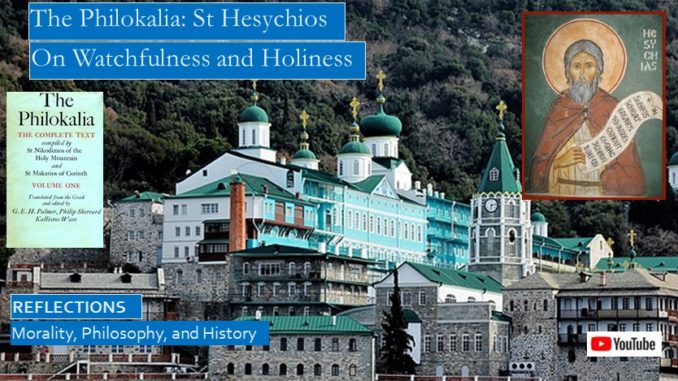
St Hesychios teaches us the lesson the whole of Philokalia teaches us, that the spiritual life is a life of daily disciplines, difficult disciplines at first, but if we persist in the spiritual life all our life, these disciplines will fill our souls with sweetness and light, just as the sun evaporates the drizzly rains, blooming the flowers of spring.
We must be watchful. “Watchfulness is a continual fixing and halting of thought at the entrance to the heart.”(6) “Guard your mind and you will not be harassed by temptations. But if you fail to guard your mind, accept patiently whatever trial comes.”(54) “Watchfulness . . . when practiced over a long period, completely frees us with God’s help from impassioned thoughts, impassioned words and evil actions. . . This enables us to fulfill every divine commandment in the Old and New Testaments and bestows every blessing of the age to come. It is . . . purity of heart, a state blessed by Christ when He says” ‘Blessed are the pure in heart, for they shall see God.’(1) “Purity of heart is the ground for the vision of God.”(52)
YouTube video: https://youtu.be/tqAU8li8ta0Lord, may we be watchful, free us from impassioned thoughts so we may Love You with all of our heart and with all of soul and with all of our mind and with all of our strength, so the concerns of life will not bar our path to You, so we will not covet, so we think the best of our neighbor, seeing sin in ourselves rather than our neighbor. Lord, may we be watchful, free us from impassioned words, so we may honor your name, so we may speak well of our neighbor, guarding his reputation rather than gossiping. Lord, may we be watchful, free us from evil actions, so we may truly love our neighbor as ourselves, seeking eagerly to forgive our neighbor his faults, guarding our neighbor’s possessions as if they were our own, truly loving our neighbor, never using our neighbor solely for our pleasure or profit, always seeking the best for our neighbor so we will never cause him harm.
“Through His Son’s incarnation God gave us the model for a holy life and recalled us from our ancient fall. . . He taught us, feeble as we are, that we should fight against the demons with humility, fasting, prayer and watchfulness.”(164) Demons can come in many deceiving disguises, they can masquerade as angels of light, but they need not be so creative in modern times, now they fit into the plasma screen, the idol in our living room. We can’t be watchful when we are incessantly entertained by our television. “The molten idol denotes our crippled intellect,” (26) just as television dulls our intellect, slowly robbing from us our watchfulness and reasoning.
Just as we should be watchful of what we see and what we listen to, so we should be watchful what we say. “For if with God’s help we make progress daily by means of our watchfulness, we should not behave indiscriminately and damage ourselves through a host of random meetings or conversations. On the contrary, we should scorn all vanities for the sake of the beauty and blessings of holiness.”(125)
May we ceaselessly pray the prayer of Jesus, Lord Jesus Christ, have mercy on me, a sinner. “We should both pray the Prayer of Jesus and hate our evil thoughts. In this way we do God’s will.”(11) “Just as close attentiveness brilliantly illumines the mind, so the lapse form watchfulness and from the sweet invocation of Jesus will darken it completely.”(90) Watchfulness and the Jesus prayer go hand in hand, “for close attentiveness goes with constant prayer, while prayer goes with close watchfulness and attentiveness of intellect.”(94)
St Hesychios contemplates on the types of watchfulness,
Watchfulness that guards against enticing mental images and thoughts,
for these are the precursors to temptations and sin.(14)
Watchfulness that “frees the heart from all thoughts,
keeping the heart profoundly silent and still in prayer.”(15)
Watchfulness that “continually and humbly calls upon the Lord Jesus Christ for help.”(16)
Watchfulness that keeps the remembrance of death in mind.(17)
Watchfulness that fixes our gaze on heaven rather than the world.(18)
St Hesychios repeats themes we will hear in the Philokalia many times, “that purity of heart or watch and guard of the intellect who image is the New Testament, this will not only uproot all passions and evils from our hearts; it will also introduce joy, hopefulness, compunction, sorrow, tears, an understanding of ourselves and of our sins, mindfulness of death, true humility, unlimited Love of God and man, and an intense and heartfelt longing for the divine.”(113)
St Hesychios shares with us many memorable contemplations on prayer and watchfulness:
Prayer is a great blessing,
prayer embraces all blessings,
prayer purifies the heart,
Through prayer we can see God.(61)
It is impossible to find the Red Sea among the stars,
It is impossible to walk this earth without breathing air,
So it is impossible to cleanse our hearts from sinful thoughts
Without praying, Lord Jesus Christ, have mercy on me, a sinner.(28)
The more the rains fall upon the earth,
the softer the soil from which the flowers grow,
So Christ’s holy name gladdens the earth of our heart,
So our souls grows in love the more we call on the name of Jesus.(41)
As the sweet fruit begins with the blossom of the flower,
so living a godly life begins with self-control of daily discipline.(66)
When you cut the roots of plant you cause it to whither,
So sins wound’s a man’s soul, causing his heart to whither completely.(78)
Just as salt seasons our daily bread,
just as salt keeps our meat from spoiling,
so guarding our intellect sweetens our inner self,
keeping our thoughts pure, driving away evil stenches. (87)
Lord, enrich us with the sweetness of divine knowledge,
so we will find You, Lord, You who are everywhere.
Jesus, help us to discern and quell the demonic provocations,
help us to banish the temptations that lead us down the slippery slope to sin.(88)
May we hold the mirror of our intellect firmly towards You, O Lord,
so we will be illumined as pure glass glistens in the sun.(88)
As lightning flashes over and over in the summer sky,
So should we repeat the name of Jesus over and over, enlightening our heart.(105)
Just as it is impossible to battle without weapons,
just as it is impossible to swim the sea fully clothed,
just as it is impossible live without breathing,
so it is impossible to live a godly life without humility,
so it is impossible to daily guard the entrance of our heart
without ceaselessly praying, Lord Jesus Christ, have mercy on me, a sinner. (99)
Just as a tethered donkey grinding grain in a mill cannot step out its circle,
So the intellect who is not inwardly chastened cannot advance in the path of holiness,
So the tethered blinded soul cannot see the radiant light of Jesus.(130)
But the proud and spirited horse steps out delightedly with his rider in the saddle,
delighting in the light of the Lord,
delighting in the practice of the virtues,
delighting in the continual denying of self,
which brings us to the contemplation of the ineffable vision,
the dawn of spiritual knowledge, seeing God, glorifying God.(131)
“As you sail across the sea of the intellect,
put your trust in Jesus.”(150)
Just as it is impossible to cross the sea without a boat,
so it is impossible to repulse evil thoughts without Jesus’.(142)
How does St Hesychios close this wonderfully sweet work?
“There is no venom more poisonous than that of the asp or cobra, the there is no evil greater than that of self-love. The winged children of self-love are self-praise, self-satisfaction, gluttony, unchastity, self-esteem, jealousy and the crown of all these, pride.”(202)
“The kingdom of God is not a reward for works,
but a gift of grace prepared by the Master for his faithful servants.
A slave does not demand his freedom as a reward,
but the slave gives thanks as one who is in debt,
For his freedom he receives as a gift.”[1]
[1] St Hesychios, “On Watchfulness and Holiness,” in the Philokalia, The Complete Text, compiled by St Nikodimos of the Holy Mountain and St Makarios of Corinth, Volume 1, translated and edited by GEH Palmer, Phillip Sherrard, and Kallistos Ware (London: Faber and Faber, 1979), pp 161-198.


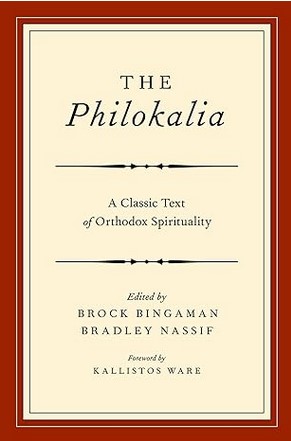

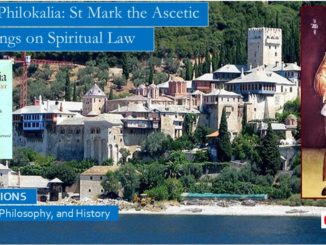
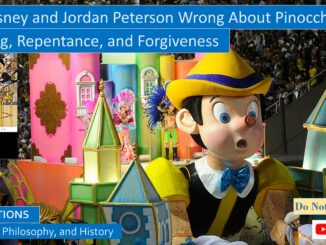
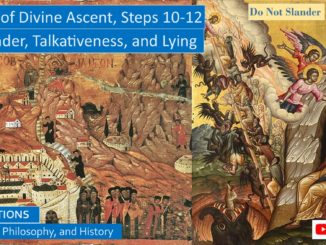
Be the first to comment